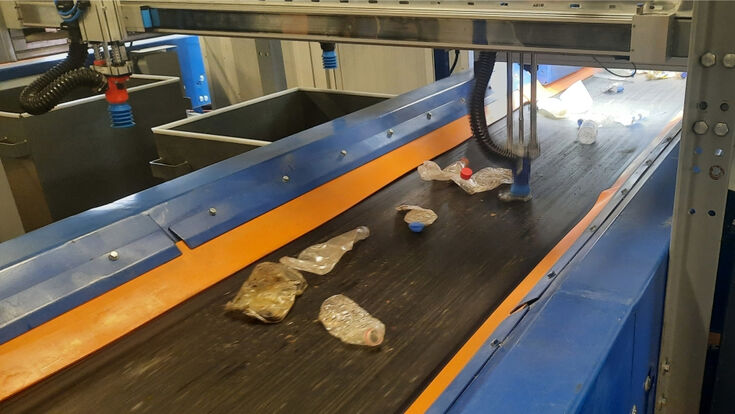Fostering Source Performance and Environmental Security Through Fluid Waste Removal Programs
In the world of ecological stewardship, the management of liquid waste stands as an essential point where source effectiveness and ecological defense merge. Via a lens of proactive involvement and critical foresight, the landscape of liquid waste administration introduces a tapestry of obstacles and opportunities that bid us to check out the course towards a greener and more sustainable future.
Significance of Fluid Waste Removal
The significance of liquid waste elimination exists in its crucial role in preserving environmental wellness and safeguarding public well-being. Liquid waste, otherwise correctly taken care of, can present severe dangers to ecological communities, water resources, and human health and wellness. With efficient removal processes, harmful substances such as chemicals, contaminants, and pathogens are stopped from polluting the environment and creating harmful impacts.
Appropriate liquid waste removal likewise aids in protecting against the spread of conditions and decreasing the potential for groundwater contamination. By securely getting rid of liquid waste, the danger of waterborne diseases and pollution-related health problems is considerably lessened - Industrial waste water treatment. Additionally, reliable removal techniques add to keeping the total tidiness and looks of communities, therefore improving the lifestyle for locals
Furthermore, fluid waste removal plays an essential role in sustaining sustainable advancement and making certain conformity with environmental guidelines. By adhering to appropriate waste monitoring methods, industries and organizations can minimize their ecological footprint and show business obligation. Inevitably, purchasing robust liquid waste removal programs is crucial for promoting environmental stewardship and fostering a healthier, much safer future for all.

Advantages of Effective Disposal
Efficient disposal of fluid waste not just safeguards environmental health and wellness and public wellness but likewise yields numerous benefits that expand past instant containment measures. Via procedures like reusing and energy recovery, beneficial sources can be extracted from liquid waste, promoting sustainability and decreasing the strain on raw products. Generally, the benefits of reliable fluid waste disposal are complex, encompassing environmental defense, resource efficiency, and financial advantages.
Technologies for Waste Treatment
Utilizing innovative modern technologies for waste therapy plays a vital function in making sure the effective management and secure disposal of fluid waste. One of the key modern technologies used in liquid waste treatment is organic treatment. This technique utilizes bacteria to damage down organic matter in the waste, converting it right into harmless byproducts. An additional typical technology is chemical therapy, where chemicals are included in the waste to reduce the effects of hazardous parts or speed up impurities for elimination. Physical treatment methods, such as filtering and sedimentation, are likewise widely made use of to separate solids from fluid waste.
Additionally, thermal treatment techniques such as incineration can be used for the full destruction of dangerous elements in fluid waste. On the whole, the integration of diverse treatment innovations guarantees eco friendly and extensive monitoring of fluid waste.
Duty of Regulations and Conformity
In the world of fluid waste monitoring, adherence to governing structures and conformity criteria is extremely important for guarding ecological health and wellness and sustainability. Rules play a critical role in governing the proper handling, therapy, and disposal of liquid waste to avoid damage to ecological communities and human health. By establishing clear guidelines and standards, regulative bodies make certain that companies and people entailed in fluid waste administration run in an ecologically accountable manner.
Compliance with these regulations is not just a lawful requirement yet additionally an honest obligation to protect the setting for existing and future generations. It entails applying finest practices in waste collection, disposal, transportation, and treatment to decrease environmental influence and advertise source effectiveness. Non-compliance can result in penalties, legal activity, and reputational damage for companies, highlighting the significance of see here now upholding governing requirements.

Future Fads in Waste Administration

An additional essential fad in waste management is the adoption of advanced information analytics and fabricated knowledge to optimize waste collection routes, improve arranging procedures, and improve overall operational performance. These modern technologies enable waste management firms to make data-driven choices, causing cost financial savings find more info and ecological benefits.
Furthermore, there is a growing emphasis on the growth of decentralized waste administration systems, such as onsite treatment centers and mobile waste handling units. These systems supply adaptability and scalability, enabling extra effective waste handling in diverse settings.
Final Thought
Finally, cultivating source efficiency and environmental management via liquid waste elimination programs is critical for sustainable growth. Effective disposal methods, progressed modern technologies for waste treatment, and rigorous policies play key functions in minimizing ecological impact. Looking ahead, constant innovation and renovation in waste management methods will certainly be vital for dealing with the expanding challenges of liquid garbage disposal.
In the realm of ecological stewardship, the management of fluid waste stands as a crucial time where source effectiveness and ecological protection assemble (Reclaim Waste).Using sophisticated technologies for waste treatment plays a vital duty in ensuring the effective monitoring and secure disposal of liquid waste.In the world of fluid waste administration, adherence to regulatory frameworks and conformity requirements is critical for securing ecological health and sustainability.In conclusion, promoting source performance and ecological defense through liquid waste removal programs is important for lasting growth. Looking in advance, continuous innovation and enhancement in waste administration methods will certainly be essential for attending to the expanding obstacles of fluid waste disposal